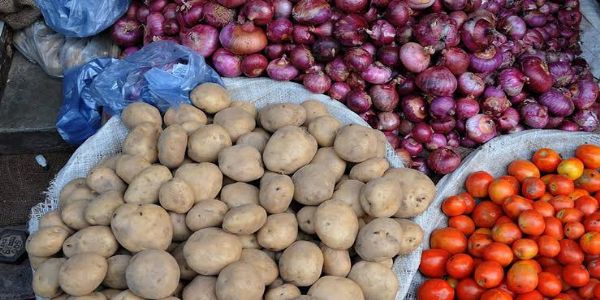
SCALING LIFE: IAD’s Integrated Medicine for Effective Treatment of Lymphatic Filariasis Morbidity and Disability in India
Funded by the Gates Foundation
India accounts for over 40% of the global burden of Lymphatic Filariasis (LF), a neglected tropical disease (NTD) that severely impacts rural communities. The Indian National Filaria Control Programme was launched in 1955. Subsequent policy prioritised disease elimination through Mass Drug Administration (MDA) and vector control. However, despite the Government’s Morbidity Management and Disability Prevention (MMDP) services through the provision of free hygiene kits (bucket and soap), advanced filarial lymphedema (ISL stage 2 & 3; WHO grade 4-7) patients continue to struggle with incapacitating disability because of poor treatment options.
The Institute of Applied Dermatology (IAD) in Kasaragod, Kerala, has pioneered a globally acclaimed, integrated medicine approach that combines modern medicine with Ayurveda and Yoga, following years of evidence-based scientific research and peer-reviewed publications.
The “Scaling Life” project (an acronym for Scaling Integrative Medicine Using Ayurveda and Yoga for LF MMDP in India) was supported by the Ministry of AYUSH and funded by The Gates Foundation. It demonstrated the successful implementation in India of an effective treatment for this neglected disease in high-burden regions of Uttar Pradesh and Bihar, offering free, integrated medicine treatment. It is a continuation of care with home-based self-care for severely disabled patients.
HOW THE PROJECT WAS EXECUTED
A BMGF (now the Gates Foundation)-Centre of Excellence for Lymphedema treatment and training was established at the IAD main centre in Kasaragod in Kerala to act as a national hub for technical support in integrated medicine LF management. The Centre operated in a hub & spoke model with four centres - Varanasi, Lucknow, Begusarai and Patna as its spokes.
The hub (IAD main centre) focused on:
Conducting training programs for teams of healthcare professionals. Each team is composed of an Ayurveda doctor, an allopathy nurse, a yoga therapist, and masseurs.
Monitored implementation and evaluated the public health outcomes of the Filarial lymphedema treatment clinics in Uttar Pradesh and Bihar.
Educated patients on LF management and prevention.
Ensured treatment adherence through regular monitoring by encouraging patients and their family members through telephone counselling and personal visits to their homes by the LF-patient coordinator.
Awareness campaigns for program stakeholders, including community camps for LF patients and social media, aimed at promoting self-care and reducing stigma.
Showed evidence-based clinical outcomes in LF patients.
Measured and assessed patient progress over time in their home and workplace, and when they returned to the treatment centres for follow-up.
The Think Tank Behind the Successful Implementation of Scaling Life
· Prof. Terence J Ryan, Emeritus Professor, University of Oxford, UK
· Prof. Christine Moffatt, International Lymphedema Framework
· Dr Bhupendra Tripathi, Country Lead, Neglected-Tropical Diseases (NTD), The Gates Foundation, India
· Prof Galib, All India Institute of Ayurveda, New Delhi
· Dr Madhur Guruprasad Aggithaya, Chief Consultant Ayurveda, IAD, Kasaragod
· Ms Harinakshi, Dermatology Nurse, IAD, Kasaragod
The group was led by Dr S. R. Narahari, Senior (Allopathy )Dermatologist and Director, Institute of Applied Dermatology, Kasaragod, Kerala.
Major Activities
Successfully demonstrated the integrated medicine treatment for Lymphatic Filariasis in most endemic areas inside the Government Ayurveda Hospitals. It reduced limb volume & cellulitis episodes and improved their health-related quality of life, aligning with the WHO goals of LFMMDP.
To meet the clinical teaching needs, the IAD team developed a curriculum with a practical training module for Ayurveda doctors, nurses, and support staff, aligned with the project goals.
Patient Education
Educational materials were designed and developed to help patients continue with self-care at home with assistance from a family member after completing the 14-day treatment at the sub-centres.
IAD has published many patient education videos on lymphedema on YouTube, and its short information posters are available on Facebook.
1720 disabled patients benefited
A total of 1720 patients with medium to severe elephantiasis of the lower legs successfully received treatment at the four centres and have returned to their previous routine lives.
Among them, 86% of the patients were breadwinners for their families (in the 18-64 age category), and 13.64% were senior citizens (aged 64 and above) or children. The population is comprised of 57.44% men and 42.56% women.
Evaluation Visits By International Experts
Leading dermatologists and lymphologists from global medical institutions, such as the Universities of Oxford in the UK and Cape Town in South Africa; International Lymphedema Framework, All India Institute of Ayurveda, National Vector Borne Disease Control experts, technocrats, joint secretaries of Government of India, Additional Chief secretaries and Helath secretaries of Uttar Pradesh and Bihar, faculty and students of both allopathy and ayurveda mediccal colleges also visited the treatment centres to understand and evaluate the response of patients to integrated medicine treatments.
Understanding the family member-assisted home-based self-care:
To ensure that the project benefited the maximum number of deserving patients, the IAD team in Patna, Begusarai, Lucknow and Varanasi conducted many awareness campaigns that included:
Patient Home Visit: The teams conducted home visits as part of their efforts to gain a deeper understanding of the patients' living conditions and social contexts. These visits provided an opportunity to engage directly with patients, their family members, and neighbours, helping to foster a supportive and informed community environment. By addressing concerns and building trust at the grassroots level, home visits were crucial in motivating patients to continue treatment at home and ensure periodic follow-up at the LFMMDP centres.
Treated Patients Appointed As Self-Care Counsellors
· Patients who received integrated treatment and practised regular self-care at home were chosen as self-care promotion counsellors for the Bihar and Uttar Pradesh regions.
· The counsellors underwent a one-month training at IAD's main centre in Kerala on patient education methodologies and understanding their roles and responsibilities.
· This was done to ensure that the counsellors, who have first-hand experience with the treatment process, can relate to the challenges faced by other patients in their respective regions, communicate effectively with them, and build trust. They
· Monitored patients through regular home visits
· Assess their progress
· Provide personalised support and address any challenges in the home environment
· Identify and mitigate social stigma
· Evaluate limb and skin health by checking for bacterial entry points (BEEP) to prevent repeated infections and cellulitis episodes
LFMMDP awareness community camps and patient mobilisation:
Pamphlet Distribution:
To inform the community, self-explanatory pamphlets on integrated medicine treatment for LFMMDP featuring key information and contact details of the treatment centres were distributed. The team also disseminated Information, Education, and Communication (IEC) materials by visiting local areas, emphasising critical messages about the disease, the availability of free treatment at IAD centres operating within government facilities, and strategies to combat the social stigma surrounding it.
Public Awareness camps
The team worked extensively with various channels of the National Vector-Borne Disease Programs, organised patient meetings, and participated in ASHA cluster meetings to create awareness about Lymphatic Filariasis and the availability of free treatment at AYSUH hospitals run by IAD. The team also appealed to ASHA workers to refer patients to centres. The team actively participated in patient education camps organised by the District Malaria-Filaria Officers, ASHAs, and various NGOs.
PR Outreach & Media
A successful PR outreach effort by IAD resulted in widespread national and regional media coverage for the project. The project's community impact and integrated treatment approach were highlighted in several online and offline publications, including major national dailies and leading regional newspapers. This media attention significantly boosted the project’s visibility, enhanced public credibility, and positioned the integrated medicine treatment as the current best treatment option, which is locally available and culture-specific without requiring high technology assistance that can be easily integrated into the available healthcare streams.
Hindusthan Samachar / Manohar Yadavatti







